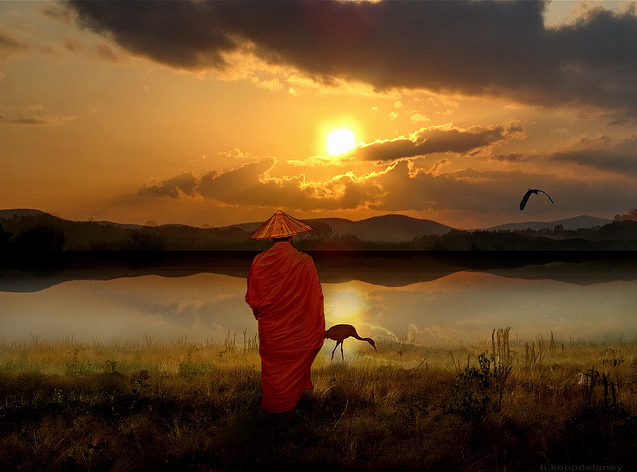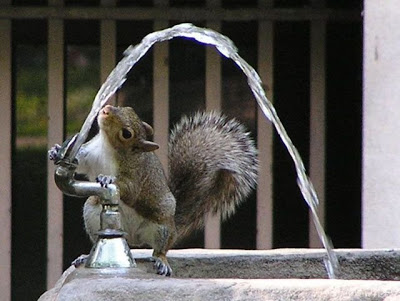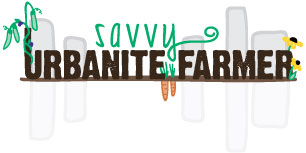
Look up “calm mind” and you’ll find similar images to these. Most of them have water. (Found @ TinyBuddha)
It’s been raining nearly every day since sometime in April here in Indianapolis, Indiana. With all the rain, ponds are on my mind — after all, we have enough free standing, volunteer ponds around. The purpose of ponds beyond annoying us when we drop something in them is three-fold. They have a calming psychological effect on us, they draw wildlife to the area and add diversity, and they create a space where you can add different vegetation to your urban landscape.
Our primal love of water
The psychological effect of water is one of those things that we know to be true in the root of our being without really understanding the hows or whys behind it. Yet, it has been studied, questioned, praised, and worshipped. Perhaps it’s the calming white noise as water runs that puts something in our minds into a meditative state, or perhaps it’s just because our inner lizard brain knows the value of water for it’s own survival. Either way, water in a landscape is beneficial to our psyches.
Regardless of what you believe on this, it is hard to deny that a nice warm shower helps everyone relax, and the siren song of the beach is nearly irresistible from time to time.
Observing nature

Because not all of us have watering fountains in our yards. (Found @ Curious Photos)
One of the reasons we have a garden is so we can observe nature while we also support ourselves. Water is a natural attractor for all wildlife — after all, all living things on this planet need water to survive. But, it’s a sad fact that most animals do not die from not being able to find enough to eat — they die from not having enough water to drink .
A pond provides a place for your local wildlife to grab a drink, and a place for you to observe their antics. You’d be surprised at how adorable those “tree rats” called squirrels can be when they aren’t digging at your plants. Birds will flit and play around the edges of the pond bring you delight as you lounge or work nearby.
Ponds really are a hot spot for wildlife, which has its pros and cons — there may be more bird droppings, but there will also be more fertiliser. More squirrels mean more nibbles on your plants, but it also means more laughter at their antics.
Diversifying your crop
But, if you’re here, you want your ponds to be more than just pretty and attract wildlife. You appreciate the emotional benefits, but it’s not the whole story for you. That’s where you look the area around your water installation in a new way: from those of crop diversification. What would you do with a pond, if you had one? Perhaps you could get a duck or two from the local farm and supply store, then collect duck eggs. Perhaps you can grow the exotic lotus plant and eats the roots like the Asians if you had the right climate.
Or, perhaps you’re thinking something a little more long term. Something a little more like an adventure in permaculture. With permaculture, you can raise fish for food (and fertilizer for the aquaculture plants), and a whole new variety of water loving plants that you may not have thought possible. Rice? Lotus roots? Home grown fish? Duck eggs? OK, I’m getting hungry.
Over the next couple of months we are going to talk about ponds and permaculture. Have questions? Ask them in the comments. Have answers or experiments you’d like to share? We’d love to hear from you too!
